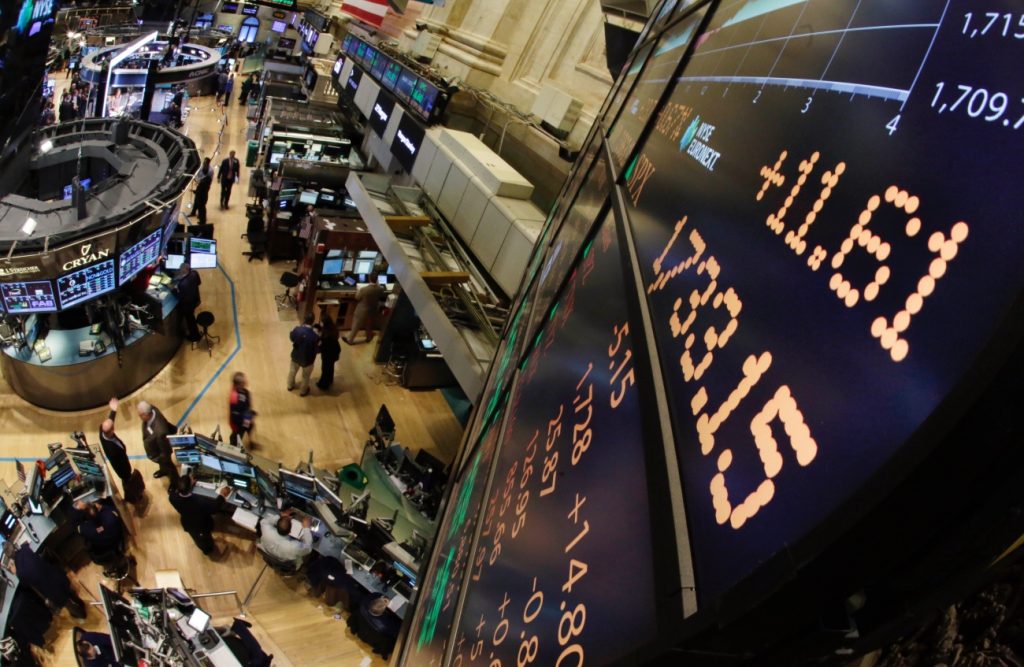Introduction
In the fast-paced world of financial markets, few events can create such immediate and intense volatility as a geopolitical shock. Whether it’s a surprise diplomatic breakdown, an escalation of military conflict, or an unexpected regulatory move, geopolitical events have the power to upend market expectations and set the stage for massive price movements across multiple sectors.
When such a shock occurs, investors need to quickly reassess their positions and consider the implications for various market sectors. The big question is: Which sectors will become the primary “catalyst trades” following such a shock? In this article, we break down three key sectors that will likely become the focal points of tomorrow’s trading after a significant geopolitical event. Whether you are a day trader, swing trader, or long-term investor, understanding how to position your portfolio amid such volatility could make all the difference.
1. Energy Sector: The Geopolitical Wild Card
One of the first sectors to feel the impact of any geopolitical event is energy. In today’s world, global energy markets are highly interconnected, with crude oil, natural gas, and other commodities being deeply affected by geopolitical instability. Whether it’s a military conflict in the Middle East or a sanction on a major oil-producing nation, energy prices are often at the mercy of geopolitical shifts.
Why It Matters:
- Oil Prices Soar: Historically, geopolitical tensions in regions like the Middle East, Russia, or Eastern Europe have led to sharp spikes in oil prices. Any disruption to the flow of oil and gas can have a profound impact on energy prices, as investors rush to hedge against potential supply shortages.
- Energy Security: Geopolitical events often prompt nations to reevaluate their energy security strategies. Countries may increase reserves, shift reliance to alternative energy sources, or even alter energy policies. This shift can lead to a repricing of energy stocks, particularly those involved in exploration, production, and distribution.
- Supply Chain Disruptions: Even if the geopolitical shock doesn’t directly affect energy production, disruptions to supply chains—such as shipping routes or refining capacity—can also result in price hikes for fuels and energy.
How to Position:
- Oil and Gas Producers: Energy stocks, particularly those involved in upstream activities (like ExxonMobil, Chevron, or ConocoPhillips), are likely to benefit from higher energy prices. These stocks tend to be highly sensitive to changes in oil prices.
- Renewable Energy: While traditional energy stocks may see short-term gains, geopolitical tensions often push governments to reconsider their long-term energy strategies. This could benefit renewable energy companies, particularly those in solar, wind, and hydrogen sectors, as nations look to reduce reliance on unstable energy sources.
- Natural Gas: If the geopolitical shock involves a disruption to natural gas supplies, companies in the liquefied natural gas (LNG) space (such as Cheniere Energy) could see significant upward movement.
Key Trades:
- Buy energy stocks with strong hedges or resilient supply chains.
- Consider ETFs focused on energy exploration and renewables.
- Watch for energy commodity futures like Brent Crude and WTI Oil.
2. Defense and Aerospace: The Surge in Military Spending
Geopolitical shocks, especially those that involve military escalation or threats of war, often lead to immediate and sharp increases in military spending. For investors, this means a golden opportunity in the defense and aerospace sector. Whether it’s increased purchases of weapons systems, military vehicles, or advanced technology, defense companies are poised to benefit from heightened security concerns.
Why It Matters:
- Government Contracts: Nations that are suddenly facing increased military threats often announce massive increases in defense spending. This results in an influx of government contracts to defense companies, particularly those that specialize in advanced weaponry, aircraft, drones, and cybersecurity.
- Geopolitical Alignment: Geopolitical shocks often force countries to align their defense capabilities, leading to partnerships and military alliances. For instance, NATO members may boost their defense budgets in response to an emerging threat from a rival power.
- Escalating Tensions: If the geopolitical event involves rising tensions with a major military power (such as China, Russia, or North Korea), defense companies in the U.S., Europe, and Asia will likely experience a surge in demand for defense technologies.
How to Position:
- Defense Contractors: Lockheed Martin, Northrop Grumman, Boeing, and Raytheon are some of the key players that could see their stock prices rise sharply in the wake of geopolitical instability.
- Aerospace Manufacturers: Companies in the aerospace sector, particularly those specializing in military-grade aircraft (like General Dynamics and BAE Systems), may benefit from government contracts during periods of heightened military readiness.
- Cybersecurity: With increasing threats of cyber warfare, cybersecurity firms such as CrowdStrike, Palo Alto Networks, and Fortinet may see strong demand for their products and services.
Key Trades:
- Buy stocks of top defense contractors and companies involved in military technology.
- Explore ETFs that focus on defense and aerospace sectors.
- Pay attention to government budget proposals for defense spending.

3. Precious Metals and Commodities: The Safe-Haven Play
When geopolitical tensions rise, precious metals like gold and silver often become the go-to assets for investors seeking to protect wealth. Historically, gold has been viewed as a safe haven during times of crisis, and its value often spikes when geopolitical risks increase.
Why It Matters:
- Flight to Safety: During times of uncertainty, investors typically flee riskier assets (such as stocks and bonds) and seek out assets that are viewed as a store of value. Gold, in particular, has been strongly correlated with geopolitical instability.
- Inflation Hedge: Geopolitical shocks, especially those related to energy crises, can fuel inflation. Gold and other precious metals serve as a hedge against inflationary pressures resulting from higher energy prices or supply chain disruptions.
- Currency Fluctuations: Geopolitical shocks often cause currency volatility, particularly in emerging markets. In these times, gold acts as a hedge against currency devaluation.
How to Position:
- Gold: Buy gold ETFs such as SPDR Gold Trust (GLD), or consider physical gold investments if you anticipate a prolonged geopolitical crisis.
- Silver and Other Precious Metals: While gold is the most well-known safe haven, silver, platinum, and palladium are also attractive during periods of market uncertainty.
- Commodity ETFs: For broader exposure, consider commodities ETFs that track a basket of precious metals and energy commodities.
Key Trades:
- Buy into gold and silver ETFs, or explore mining stocks like Barrick Gold and Newmont.
- Watch commodity futures for gold, silver, and platinum.
- Diversify into inflation-protected bonds or commodities ETFs.
Conclusion: Reacting to Geopolitical Shocks
Geopolitical shocks are unpredictable, but the market’s reaction can often be more systematic than we realize. Understanding how different sectors respond to military escalation, energy disruptions, or inflationary pressures will help you make more informed decisions when such events unfold.
The energy, defense, and precious metals sectors are likely to be the most active in the wake of geopolitical tension. However, as with all trades, timing and risk management are crucial. Geopolitical events can trigger immediate volatility, but they can also present opportunities for those with the right information and strategy.
When these shocks occur, ask yourself: Which sectors are primed for a move? The answer may just lie in one of these key catalyst sectors.













































